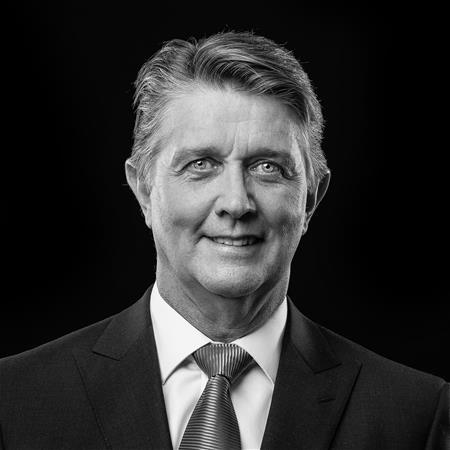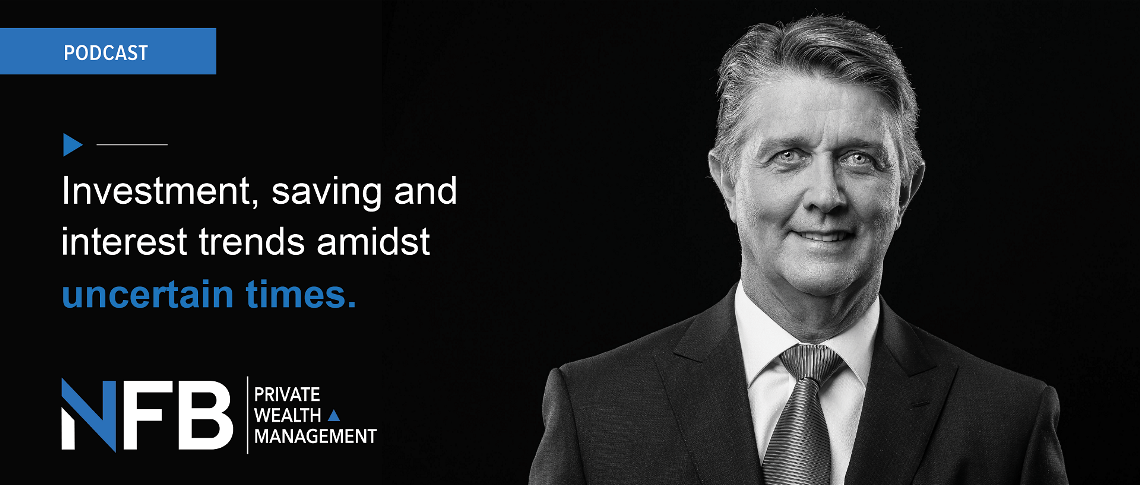Pandemic panic should not shape your money decisions
In this Business Day Spotlight podcast we look at how savings and investment have been impacted by COVID-19 for ordinary South Africans.


We have yet to see the longer-term effects of C19 – on our country, careers, communities, and connections. What is certain is that our finances are inextricably linked to our recovery - socially and economically. NFB Private Wealth Management Chairman, Mike Estment, in a Business Live interview with journalist, Mudiwa Gavaza, says a proactive approach can mitigate the impact on our investments and savings.
Listen to the podcast below or review the summary below.
The sun always rises
While COVID has affected global markets, South Africa is in a unique position. Emerging markets typically struggle with inflation and debt, and South Africa entered lockdown in the wake of political and economic turbulence, with rating agencies downgrading our country to junk status and our currency losing value.
The most tangible impact of C19 locally has been the deepening of poverty levels; businesses have been compromised and incomes have evaporated. Unlike many governments abroad, the South African government is not providing substantial financial assistance to companies and individuals.
The temptation may be to dip into savings or to sell investments to cover expenses. Mike Estment urges investors to find any other way to tide them over other than those two options, if possible. “Cut whatever you can to limit the damage to savings while the markets and share prices are down, and your retirement savings value is down. Things do recover but the money has to stay there in order to allow that recovery.”
Mike identifies a common human error, known as recency bias: we tend to focus on the here and now, and we can only imagine a future that looks like the immediate past. This mistake can shape decisions we make for our futures, especially regarding our finances. With this in mind, he urges South Africans to take a longer view, and to heed his favourite mantra: The sun will always rise tomorrow. “There's no reason,“ he says, “that we cannot see the Rand come back reasonably, or why our market and the quality companies in South Africa can't come back from these very low prices as they've done through many crises over the last 20, 30 or 50 years.”
Mike continues his encouraging message by reflecting on the resilience of the South African people.
“We are remarkable people; we’ve bounced back before and have a will as a nation. This experience has the potential to change how we have been thinking as a country and communities. We’re now slowly moving back into an active economy; it's going to take collaborative effort from all of us, and partnership between government and big business that hasn't happened for decades.”
Mike is not ignoring the reality: low interest rates, a weak currency, little interest in investing in South Africa for now. He anticipates a shift when the world starts needing our iron, gold, platinum and coal. “It's not going to be without pain. I don't think we’re done with COVID - hopefully we escape some of the outcomes seen in some overseas countries trading partners.”
Mike recognises that each person can take positive action to safeguard their savings and investments. Here are his takeaways:
Mike’s 4 Ps for personal finances
1. Prudent purchasing
Now is the time to think out of the box and to tap into resources that will obviate the need to draw down on savings or sell investments. Now is not the time to buy new cars, initiate home improvements or splurge on expensive holidays – no gratuitous spending. Can any family members assist you financially? Can you find a new way to generate an income? Which luxuries can you cut?
2. Perspective
Recognise that it is likely that our economy will recover, as we have done over past decades. Think longer term and avoid recency bias. We are all under financial and emotional pressure at the moment, so avoid being passive and a sense of helplessness. For example, go to your bank and see if there is any way your savings in the bank can perform better.
3. Planning
Set goals, understand what you want to achieve and why, and go for it. Have a plan. Consult a financial planning expert who can help you remove the emotion and help you achieve your goals. A great advisor listens carefully to you, interprets what you need and helps you shape a plan that suits you.
4. Patience
This tip is linked to all of the others. Don’t leap at scams that promise a quick rescue or unreasonable returns on your investment. You know that when you are saving for retirement, or your children’s education, this is a worthy and long-term goal, the outcome of which is worth the sacrifices. You can derive a great sense of purpose and achievement from being frugal towards a particular goal.
 Mike Estment is the Chairman and a Private Wealth Manager at NFB Private Wealth Management: [email protected]
Mike Estment is the Chairman and a Private Wealth Manager at NFB Private Wealth Management: [email protected]
Read Mike's feature article that supports this interview. In which Mike discusses three things to consider before restructuring your investment portfolio during uncertain times.
 Mudiwa Gavazad is a Business Journalist for Business Day and Financial Mail, and hosts Business Day Spotlight conversations.
Mudiwa Gavazad is a Business Journalist for Business Day and Financial Mail, and hosts Business Day Spotlight conversations.
NFB prides itself on the fact that we are Independent Wealth Managers, partner with us on your financial journey.
#KnowledgeIntoWealth #NFBInsights













